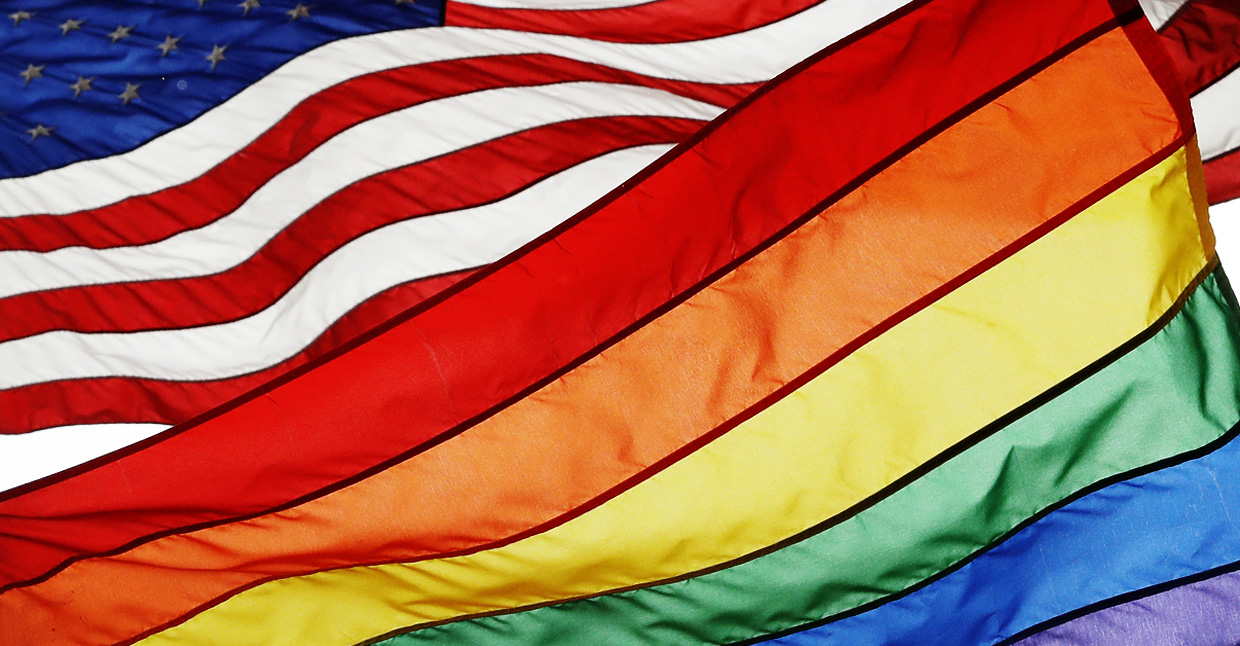Law: Banning drag performances
Location: Tennessee
What does it do? Tennessee has passed a law (SB 3) that prohibits drag performances for children. The law categorises drag queens as "adult cabaret" alongside strippers and go-go dancers. The law was signed by the governor of Tennessee but has been temporarily blocked by a federal judge. It is unclear whether the state will appeal this decision.
Similar laws in: Montana, Texas, Arkansas, North Dakota, and Florida
Law: Banning gender reassignment
Location: North Dakota
What does it do? Law HB 1297 makes it practically impossible for transgender individuals to change their gender on official documents. The law explicitly prohibits gender reassignment based on identity. A change can only occur if there was an error in the initial registration at birth or if the genitalia has been "anatomically corrected."
Similar laws in: Oklahoma, Indiana, Tennessee, Montana
Law: Prohibiting trans individuals from using toilets, showers, and other facilities
Location: Florida
What does it do? This law addresses the fabricated fear of anti-trans activists: transgender individuals using public restrooms. Several states have turned this fear into a prohibition. In the case of Florida's law HB 1521, transgender individuals are required to use facilities that correspond to their assigned gender at birth. Failure to comply can result in high fines or even imprisonment.
Similar laws in: North Dakota, Iowa, Tennessee, Oklahoma, Alabama
Law: School must inform parents when a transgender child comes out
Location: Iowa
What does it do? Under the conservative "parental rights law" SF 496, educational institutions are obligated to inform parents when a child comes out as transgender, regardless of the child's own wishes. The law also bans books that discuss sexual acts from being used in schools, further enforcing the obligation to inform parents when a child wants to use different personal pronouns. LGBT+ organisations argue that this hinders children from coming out, especially if they have strict parents who do not accept transgender identities.
Similar laws in: North Dakota, Indiana, Alabama
Law: Removal of HIV and AIDS from the school curriculum
Location: Iowa
What does it do? Law SF 391/HF 327 bans the teaching of HIV/AIDS in schools. Human Rights Campaign warns that the lack of education on this topic perpetuates the stigma against HIV-positive individuals and could lead to a drastic increase in infections.
Similar laws in: Florida
Law: Ban on transgender healthcare for minors
Location: Texas
What does it do? Law SB14 prohibits doctors from providing transgender healthcare to children. Texas Governor Gregg Abbott strongly opposes these treatments, labelling them as "child abuse" and previously sought to prosecute parents supporting their children's access to transgender healthcare, but this was stopped by the court. Many other states are also attempting to restrict transgender healthcare for minors. Transgender rights organisations are actively using legal challenges to prevent the implementation of these laws, often with success.
Similar laws in: Idaho, Indiana, North Dakota, Oklahoma, Georgia, Florida, Mississippi, Utah
Law: "Don't say gay" in education
Location: Florida
What does it do? The "Don't say gay" law in Florida is one of the most notorious anti-LGBT+ laws in the United States, serving as inspiration for politicians in other states. Officially aimed at "protecting children," the law prohibits the discussion of LGBT+ topics in schools. Due to the vague wording of the law, teachers are cautious when it comes to LGBT+-related issues. A mother recently complained about her son's teacher showing a Disney film featuring a homosexual character. Advocacy organisations warn that this severely limits the visibility of LGBT+ individuals. The name opponents give to this law reflects this fear: even uttering the word "gay" could theoretically be detrimental to a teacher's career.
Similar laws in: Arkansas, Alabama, Kentucky, Indiana, Iowa. Louisiana, Mississippi, Oklahoma, and Texas also have similar laws, dating back to the HIV/AIDS crisis in the 1980s.
Law: Prohibition on teachers using self-selected personal pronouns
Location: Arkansas
What does it do? In Arkansas, if a student prefers to be addressed with certain personal pronouns like she/her or they/them, teachers are not allowed to comply if the student was assigned male at birth. According to law HB 1468, this can only be done with written permission from the parents. However, the law also allows teachers to refuse to use the chosen personal pronouns, even if there is a written consent from the parents.
Similar laws in: Alabama, Arkansas, Florida, Indiana, Iowa, Kentucky, Montana, North Dakota, Tennessee, Utah.















